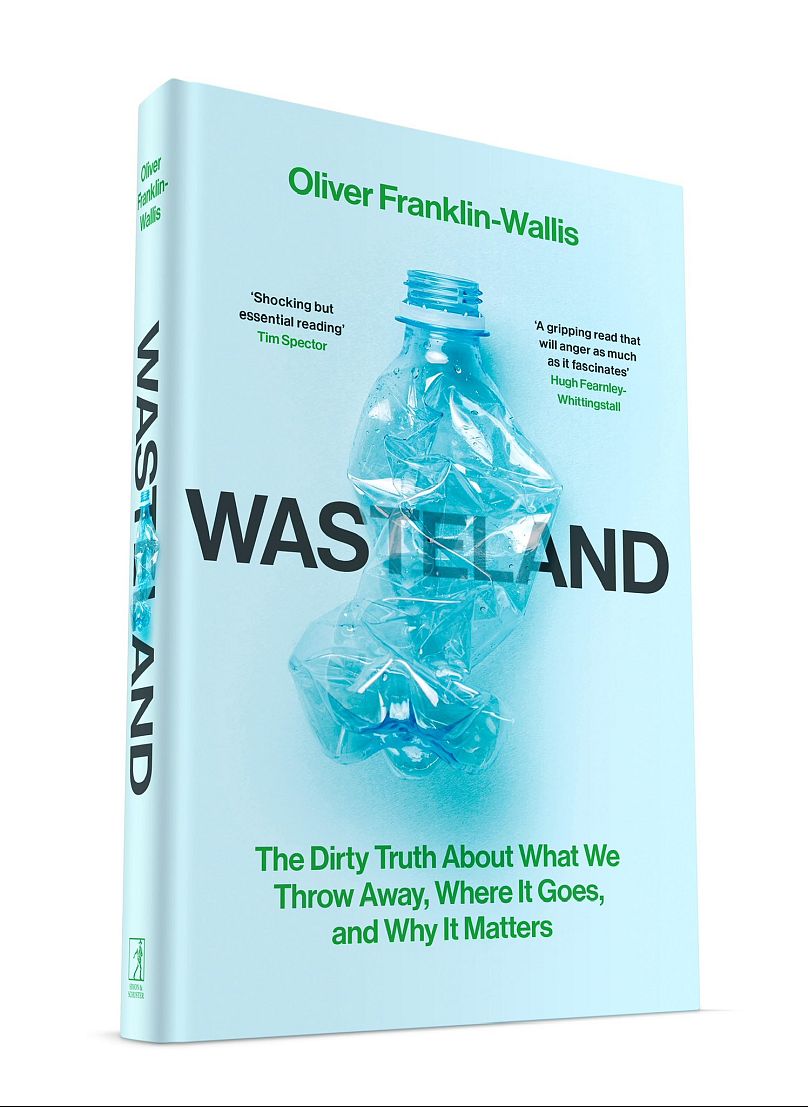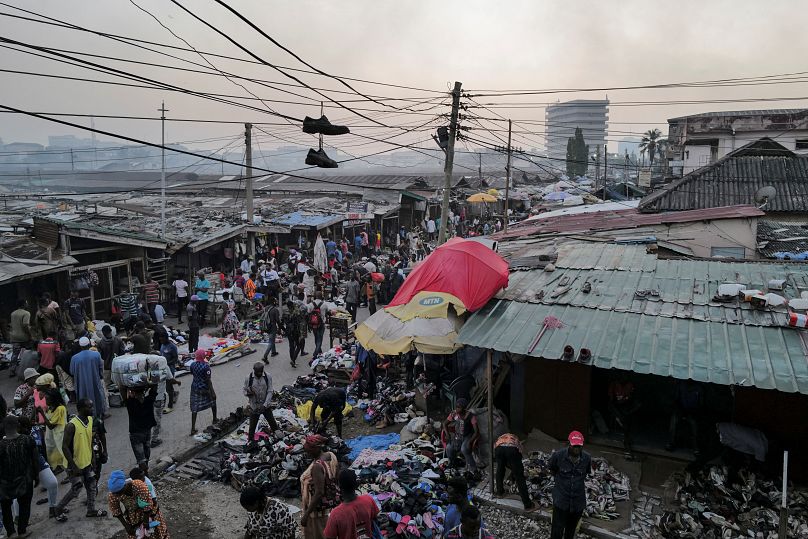Oliver Franklin-Wallis’s deep-dive into what we throw “away” reveals the dirty truth about the Global North’s overconsumption and waste management.
I’m only three pages into Wasteland when a stat first unnerves me: “It is forecast that by 2050 we will be producing a further 1.3 billion tonnes [of waste] a year.”
It already feels like the world is weighed down with waste. And I’d (somewhat naively) hoped that, given today’s talk of sustainability, recyclable materials and circular economies, we’d be headed the other way by 2050 - towards a less wasteful world.
But Oliver Franklin-Wallis’s remarkable investigation into the global waste crisis confirms we need revolutionary change before we can reach that dream.
With Wasteland, he’s done the legwork - literally, from wading through a mega landfill in Delhi, to touring the UK’s largest nuclear waste facility - to see where things go once we throw them “away”, how we reached this crisis and the ways out of it.
“Waste is monstrous to look at because it is a mirror,” he writes at one point. It’s an apt metaphor. Much of the book’s contents are a scary reflection of our overconsumption and failure to deal with its impact.
How did we reach a global waste crisis?
To lay out the current crisis, Wasteland also takes us backwards through our evolving relationship with waste.
Within these sections, we’re treated to history lessons about innovators and innovations in waste management. It might not sound like the most riveting topic, but actually these are hidden stories behind things we take for granted as part of everyday life - and they’re completely engrossing.
Take the journey through London’s sewer system, masterminded by Victorian engineer Joseph Bazalgette. Still intact today (though now inadequate for the city’s nine-million strong population), the project was a phenomenal feat of engineering and pretty much wiped out major diseases like cholera, dysentery and typhoid in the city. It added an estimated 20 years to the average life expectancy at the time.
It’s a story Wallis uses to emphasise the inequality in waste management today: “1.7 billion people worldwide still do not have access to modern sanitation facilities.” We see this continually throughout the book - access to good, safe and environmentally friendly waste management facilities is sadly a privilege.
Inevitably, there are also many turning points and actors for the worse. One of the most galling examples is of plastic-polluting corporations coming together to change the narrative around waste, one that’s stuck around for decades.
As the US public began to question the increase of disposable products and related waste in the 1950s, the likes of PepsiCo and Coca-Cola formed a non-profit which campaigned to put the blame on ‘litterbugs’. “Garbage, according to Keep America Beautiful, was the responsibility not of companies, but individuals.”
Greenwashing might be in the headlines today, but it’s clearly nothing new.
Cleaning up this crisis means ending toxic colonialism
One pattern that keeps emerging as Wallis maps the flow of waste around the world is north to south. Whether it’s Yeo Valley yoghurt pots in Malaysia or mountains of clothes in Chile’s Atacama Desert, we keep seeing signs of the Global North’s consumption polluting countries in the Global South.
Wallis breaks down how ‘toxic colonialism’ is to blame. That is, the process of shipping waste to countries without the infrastructure to safely dispose of it. “It’s an act of exploitation, even domination,” explains Wallis.
Interviews with people on the frontline of waste management systems and campaigns show the strain cleaning up toxic colonialism’s messy impact puts on local communities. Never is this clearer than when Wallis meets people attempting to manage the “wave of ever-lower-quality clothing” flooding Ghana’s largest second-hand market, Kantamanto in Accra.
“We are being used as a dumping ground for the white man’s textile waste,” fumes the city’s exasperated head of waste management department, in one particularly powerful encounter. “The little money we have to manage our waste, we’re using…to take care of your waste. Which is not right.”
Are Extended Producer Responsibility funds the answer?
It’s certainly not right and throughout Wasteland, Wallis argues that corporations and governments in the Global North need to clean up their act and take greater responsibility for their waste. But how should this be done?
Extended Producer Responsibility (EPR) funds, where producers cover the full net costs of managing waste created through their product’s entire lifecycle, are one solution explored.
In Accra, Wallis also meets with the Or Foundation, which campaigns for reform to the global second-hand garment trade. In 2022, the NGO agreed a controversial five-year, $50 million (€47.5mn) EPR agreement with fast fashion giant Shein.
It’s a deal that leaves Wallis conflicted. “It’s great that Kantamanto, and Accra, will finally see money from the fast-fashion industry. But it also seems to me to be a sticking plaster, as well as an extremely convenient piece of PR for the fashion brands.”
“Shouldn’t something so fundamental as waste management be decided through legitimate means - taxes, international agreements - rather than one-off stunts?”
One thing he is unequivocal about is that companies need to be “paying to clean up their waste where it actually ends up.” That means going beyond investing into recycling and clean-up schemes in the Global North, for instance.
Facing up to our waste problem
Wallis also makes a compelling case for creating more public waste management systems, to help us clean up the crisis.
“Humans are biologically wired to avoid disgust, to look away from filth and decay. And so the waste industry is hidden.” That leads to an out of sight, out of mind attitude, so let’s bring it out into the open, he argues. Quoting the author Don DeLillo, he suggests making “an architecture of waste” and “designing gorgeous buildings [where people go] to recycle,” for example.
It’s a powerful idea. Reading Wasteland reveals how little we know about the lifecycle of the things we buy and throw away. But once you’re aware of the issue, it’s hard to ignore.
It’s a feeling summed up in the book by one scientist studying compostable packaging: “You see and understand these things that you blissfully didn’t have to deal with before, but now can’t stop thinking about.”
Wasteland shows what we’re up against and it doesn’t always make for pretty reading. But it is the wake-up call we need to do better.













